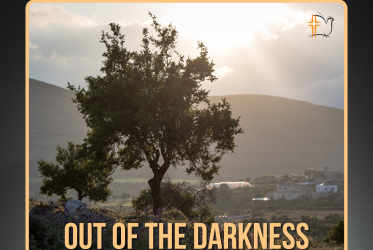By Katja Buck*
What does the impending 500th anniversary mean outside its European birthplace?
In the Middle East, Reformation stands for a strong legacy yet also the uncertain future of a tiny and splintered minority. The churches of the Reformation remain important within the constellation of Christian groups, say non-evangelical Christians, who call upon them to lead in ecumenical outreach to newer charismatic and Pentecostal groups.
Protestantism in the Middle East has a short history. In the mid-19th century, Protestant missionaries came from North America and Europe, bringing with them the idea of the Reformation as standing for freedom of conscience and a Bible-centred life. They founded schools and universities, built hospitals and started widespread social work. Although mixed with elements of Western cultural imperialism, their work began a transformation of society that is still evident today.
Influential past, uncertain future
“Reformation means for us Protestants a great legacy, especially in the field of education, social service, and sciences,“ Dr George Sabra, President of the Near East School of Theology (NEST), said during an international conference “The Protestant Reformation 500 Years Later in Germany and Lebanon,” which was held in Beirut from 24 to 27 June, sponsored by the Evangelical Church in Germany (EKD). But seeing the political and social challenges in the whole region, Sabra also asked, “What will be our contribution in the future?”
The future of Protestantism in the Middle East is questioned more than ever. In all countries of the region, Christians represent a small minority and Protestants among them are even a tiny and splintered one. Protestant churches are concerned about emigration, and Protestant youth are emigrating in great numbers. “We are historically, theologically and liturgically rooted in the West and not in the East as the other churches here in the region,” Sabra said. “For us, the relations to the West are a blessing, of course. But we also have to answer the question: who are we — Westerners or even foreigners? Should we Easternize our identity? Some make us feel that we are a Western mistake in church history,” Sabra said.
Confrontation between the Protestant missionaries and Catholic, Orthodox or Oriental Christians in the 19th century was also sometimes aggressive. “The Western missionaries considered the local churches as fields of mission where they proselytized,” Serj Boghos Tinkjian, vice-deacon of the Armenian Orthodox seminary in Bikfaya, Lebanon, said. “They started sowing hatred inside the society and even in families. Their evangelistic zeal was supposed to reform the old churches. But they took the people and created new churches.”
But Tinkjian also emphasized that the new presence of Protestantism in the 19th century enriched the theological debate, at least in the Armenian Orthodox church. “It opened new doors in theology. The discussion on Reformation has strengthened our church,” Tinkjian said.
At the beginning, the Reformation was perceived by the local churches as a purely Western phenomenon. “The missionaries didn’t build new oriental churches; they created new Western churches with Western languages in liturgy and administration,” said Maronite priest Gaby Hachem, who teaches theology at the Université du Saint Esprit in Kaslik, Lebanon. But he also pointed to the positive effect that the Reformation had on the society in the Middle East.
“Evangelical schools and universities had a big impact on the students who were coming from different backgrounds. This created a kind of competition between Evangelical and Catholic schools. A lot of Muslims still insist today on sending their children to Christian schools.” Hachem also mentioned that, with the presence of the Protestants, many Catholics began reading the Bible.
Struggles for ecumenical understanding
But missionaries in the 19th century didn’t come to the Middle East without prejudices toward the local churches, as Rami Wannous, a Greek-Orthodox Priest from Broummana, Lebanon, pointed out.
“They laughed at us when we were kissing the icons or when we were burning incense. They blamed us for worshipping pictures and worshipping the Virgin Mary. For them the Orthodox were the reason that the Muslims didn’t convert,” Wannous said. He identified as one of the biggest challenges of Protestantism today the division of Reformation churches into different movements and their separation from newer Evangelical groups that are not interested in ecumenical relations.
“For us, everyone who is not Orthodox or Catholic is a Protestant. But when we meet we always have to ask with which kind of Protestantism we are dealing with. We cannot see any unity in this diversity,” Wannous said.
Therefore the non-Protestant speakers all advised the churches of the Reformation to play a leading role in ecumenical outreach toward the newer evangelical and non-ecumenical groups. “Today the Protestants must be aware of the importance of their presence and ministry. Please, lead the new evangelical groups to the ecumenical movement in the Middle East. We all know that this is a matter which needs courage,” the Maronite representative, Gaby Hachem, said.
Learn more about planned ecumenical commemorations of the Reformation in 67 European sites
Examine the new jubilee volume on Reformation: Legacy and Future from WCC Publications
*Katja Dorothea Buck is a German journalist specializing in Middle Eastern Christianity.







